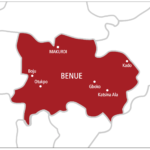Until the early 70s, that sector was the mainstay of the national economy. Statistics show that more than 70 per cent of the citizens were engaged in agriculture at that time.
Supported by a conducive climate and arable land, Nigerians took to gainful farming, both for subsistence and commercial purposes. The effort ensured self-sufficiency as the country was able to feed its people without importing food or borrowing from other nations or international agencies to meet its other needs.
For states comprising the then Western Region, cocoa was the main concern and was widely grown. “That commodity (cocoa) was selling like gold in the international market and was among the key crops sustaining the nation,’’ recalls Pa Adewoye Akinlotan, a 75-year-old farmer in Ijebu-Ode.
He also recalls that in the North, there were groundnut pyramids, especially in Kano, while hides and skins thrived in Kaduna. Yam and rice also flooded markets in Sokoto and Mokwa in Niger State.
But such gains from the sector became history when oil became the mainstay of the economy from 1973. And like most things that are transient, the oil boom era of the mid-70s and 80s appears to be fading away.
For many observers, the feared end to the oil boom seems to have come much earlier than expected with the current global economic meltdown and crash in oil prices worldwide.
The situation is worsened by the persistent violence and attacks on oil facilities by militants in the Niger Delta.
Faced with that situation, allocations from the Federation Account, usually the main source of revenue for state governments and local councils, have reduced drastically. On its part, the Federal Government has reduced the salaries and allowances of political office holders as part of measures to ensure that all segments of the society feel the impact of the meltdown.
Already, the government at the centre is considering the reduction of this year’s budget by nearly half after President Umaru Yar’adua wrote to inform the National Assembly that the 2009 budget was “no longer implementable’’.
Last week, Governor Segun Oni of Ekiti State followed suit when he said that the state budget for 2009 might soon be reduced by half.
To mitigate the effects of the downturn in the oil sector and shrinking revenue allocations from the Federation Account, nine local government councils in Ogun have taken steps aimed at reviving the agricultural sector and restoring its lost glory.
Mr Tunde Oladunjoye, the Chairman of Ijebu East Local Government, says the agricultural sector will be accorded “a very special preference’’ in the 2010 budget. To do this, he says that youths are being mobilised to the farm with incentives such as cassava stocks, fertiliser, loans and farm implements.
The council chairman says the young farmers are also being given free land and tractors.
Expressing regret over the negative effects of the economic meltdown, Oladunjoye, who promises not to sack workers as a way out, says the workers are being mobilised to take part in a vigorous internal revenue generation drive.
On his part, the Chairman of Ijebu-Ode local council, Chief Mufutau Oseni, says that his administration is focusing “sufficient attention’’ on the development of the agricultural sector.
“We have already invited our friends and other stakeholders to partner with us in the area of agriculture. “We have assured them of our maximum support and cooperation in that regard,’’ he adds.
The resolve is the same in the Ijebu North Local Government Area where the Chairman, Chief Remi Odubote-Ogunkoya, says the council has embarked on massive agricultural development. “We have purchased more tools, provided loans to farmers and also embraced all Fadama projects,’’ she says.
Aside these areas, Ogun Waterside, Ijebu North, Odogbolu, Ikenne, Remo North and Ijebu North-East Local Governments have all initiated steps to revive the agricultural sector in their search for alternative sources of revenue.
Observers say that these local councils are emulating what Gov. Gbenga Daniel started years ago.
Giving an insight into his government’s focus on the agricultural sector, Daniel recently told newsmen that rural roads were being constructed to provide access to farms, while massive cassava multiplication had since begun.
Other efforts, he said, included massive land clearing, youth empowerment programmes, completion and commissioning of cassava processing plants and the payment of compensation to teeming farmers whose lands were acquired for agricultural projects.
In addition are the introduction of a Millennium Farmers Project, construction of modern fish hatchery, as well as the purchase of agro-chemicals, veterinary drugs and vaccines.
According to him, more than 700,000 cocoa seedlings have been distributed to farmers, while forests are being regenerated. “Agriculture deserves prompt and serious attention if there is to be any sustainable development and sufficiency in food production,’’ he said. Professor Dupe Olatunbosun, an agricultural economist currently engaged by both Ekiti and Ogun state governments as Chief Consultant on cassava revolution, says the two states will soon be leading producers of cassava in Nigeria.
“Going by the rapidity of innovations in cassava multiplication as well as efforts to produce ethanol from cassava, we expect a lot in the next few years,’’ he says. A rural farmer at Ajebandele village in Ijebu North Local Government Area, Mr Kolade Oshin, is full of praise for the state government for its rural road revolution programme.
Oshin says he is particularly happy that the government has resolved to buy excess farm products from farmers.
“It is particularly nice that the government plans to pay en bloc,’’ he says. The farmer says the step will guard against waste arising from the lack of storage facilities in rural settlements and also empower the farmers financially.
But as the various local governments in Ogun strive to revive the agricultural sector, analysts say the goal can only be attained if the farmers are involved in the implementation of the programme. Specifically, they say that the right incentives must be provided to keep the farmers in business.
These measures, they say, will boost Ogun’s self-sustenance drive and guarantee its economic survival (NANFeatures



